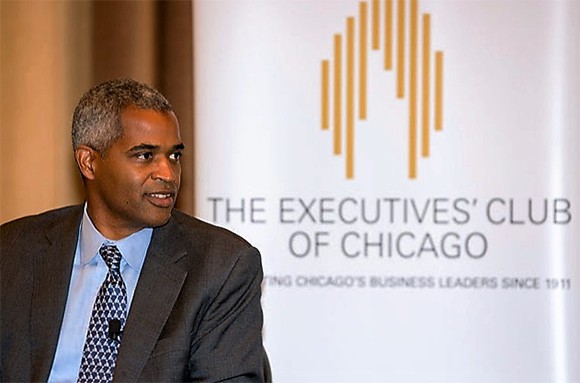
American Historian Carter G. Woodson established Black History Week. The first celebration took place on February 12, 1926. The first week of February was set aside for this celebration for many years to coincided with the birthdays of Frederick Douglass and Abraham Lincoln. In 1976, the week was expanded into Black History Month. Each year, the United States Presidents proclaim February as National African American Month.
According to the United States Census there were 45 million African Americans, either alone or in combination with one or more other races on July 1, 2013.
Incredible legacy of Dr. Martin Luther King
Dr. Martin Luther King Jr. (January 15, 1929 – April 4, 1968) legacy is incredible and it is continues to have impact in the Untied States, nearly 50 years later.
I took recently a refresher training on Civil Rights. It struck me again that many Civil Rights laws and policies were started in 1964 during the time of Dr. Martin Luther King public involvement. Of course the United States Congress enacted these Laws and President Lyndon Johnson signed them into law.
The Medicare, Medicaid programs started in 1965. We have the 50th Anniversary of these laws in 2015.
Pullman’s Designated as Chicago’s First National Monument
President Obama designated Pullman Historic District as Chicago’s first national monument on February 19, 2015. Pullman, an architecturally unique neighborhood which played important roles in America’s railroad, industrial and labor history, was developed by industrialist George Pullman in 1880.
There were many public officials in attendance over there, Governor Bruce Rauner, US Secretary of the Interior, Sally Jewell, Senator Mark Kirk, members of the House of Representatives — Robin Kelly, Bobby Rush, Mike Quigley, Bob Dold. and Rahm Emanuel, Mayor of Chicago.
President Obama said on this occasion: „That’s the story of this place — that, together, we can do great things that we cannot accomplish alone. That’s why today I’m designating Chicago’s Pullman District as America’s newest national monument. I want this younger generation, I want future generations to come learn about their past. Because I guarantee you there are a lot of young people right here in Chicago, just a few blocks away, living in this neighborhood who may not know that history”.
Illinois delegation led the efforts to designate Pullman as Chicago’s Frist Monument. Senator Kirk, along with Senator Dick Durbin (D-Ill.) have led the bipartisan effort and introduced legislation in 2014 to designate Pullman as a unit of the National Park System. Representative Robin Kelly (D-Ill.-02) introduced similar legislation in the House. In September, Senator Kirk led a letter with Representatives Rodney Davis (R-Ill.-13), Aaron Schock (R-Ill.-18) and Adam Kinzinger (R-Ill.-16) urging President Obama to designate Pullman as a Unit of the National Park System under the Antiquities Act.
“I fought for this designation with my Illinois colleagues because regardless of party, it was the right thing to do for our state. As Chicago’s first national monument, the Pullman District will bring thousands of tourists to Chicagoland every year, which will help to breathe new life into our local economies,” Senator Kirk said. “Today I am proud that America’s first industrial town, founded by George Pullman, is receiving the recognition it deserves as a national monument.”
“The future of America’s next great urban national landmark lies in the Pullman community’s storied past. As an Illinoisan, I am proud to represent this community, which has come together to share its proud legacy of labor and civil rights. And as an American, I look forward to joining visitors from across the country in exploring a new monument to this critical chapter in our national history,” Senator Durbin said. “I thank Senator Kirk and Representative Kelly for being my partners in this effort, and congratulate the many members of this community who have worked so hard to restore and preserve this unique landmark.”
“Pullman National Monument will be a crown jewel of the community, a remarkable achievement made possible only through the cooperation and collaboration of leaders from the public and private sectors and the residents of the neighborhood. Thanks to the hard work and dedication of many, the history and legacy of Pullman will endure for generations to come and people from all over the country will be encouraged to visit and learn more about the vital role Pullman played in our nation’s labor and civil rights history,” said Representative Kelly.
Designating Pullman’s as Chicago’s First National Monument is another monumental step to show incredible legacy of African American Community in the USA.
On personal note, I had an honor of doing an interview with Sen. Barack Obama in 2003 when he was running for the national office. We had very informative discussion about the US Constitution, Civil rights. The issue that I raised during the interview was the will of General Thadeus Kosciuszko, who fought for the United States Independence and in 1798 drafted a will to Thomas Jefferson. Kosciuszko expressed in his will that he wanted to provide funds to educate and emancipate African American slaves. Thomas Jefferson agreed initially to be the will’s executor. Kosciusko returned to Europe and, over the years, wrote three additional wills that put his 1798 bequest in jeopardy. The initial request of Kosciuszko was not enacted but it showed his visionary leadership to treat all people as created equal, as Thomas Jefferson wrote in the Declaration of Independence.
My interview with Sen. Obama in 2003 and number of other interactions with him allowed me to learn first hand about his incredible leadership skills, communication abilities that brought him national recognition in 2004 and that led him to winning the United States Presidency for two terms.
Barack Obama is the President of the United States. He fulfils the dreams and vision of many African American leaders like Dr. Martin Luther King and others.
@ Andrew Mikolajczyk
Dr. Martin Luther King question is still relevant today: „Life’s more persistent and urgent question is 'What are you/am I doing for others?”
Photo Source :http://www.csudh.edu/



